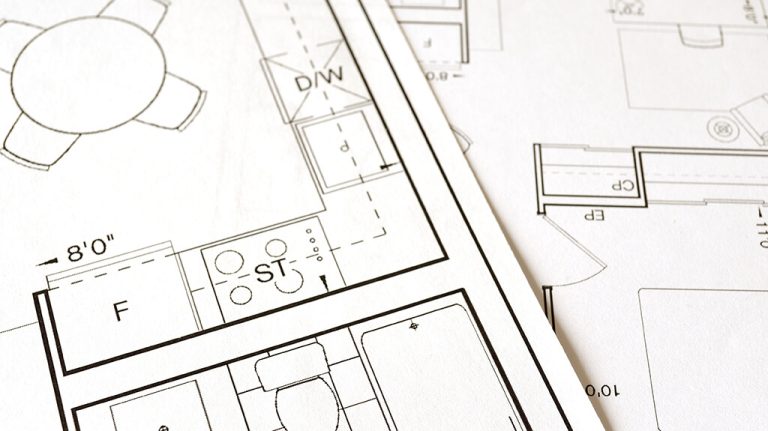“RIGHT SIMPLE” to the dream property! Save money through efficient and targeted consulting.
Tips & FAQs - Real estate purchase and donation of properties
The purchase of a property, condominium or a single-family house is for many people the most important and also the largest transaction in their lives, which must be well thought out, planned and considered.
However, real estate is also a popular form of investment; for example, a retirement apartment can be purchased or invested in an apartment building.

Planning
Already in the planning stage, it is important to maintain an overview and it is advisable to deal with the following questions in good time:
- Do I need a lawyer, trustee or notary?
- How and with what deadline can the present residence be left or a lease be terminated? What termination options and notice periods have been agreed?
- Will a buyer be found for the property in time?
- Can the property be sold and continue to use it until the new property is transferred?
- Can transition periods and/or usage agreements be made?
- How is the purchase price secured?
- Is interim financing needed?

Economic efficiency / cost saving
If a property (real estate, condominium, single-family house, terraced house, property developed by a property developer or investment apartment) has already been considered or if you are still looking for one, we advise you to proceed as efficiently and purposefully as possible. On the one hand, this can save costs, and on the other hand, valuable information can be obtained that has an influence on the profitability of the property, but can also provide a decisive competitive advantage over competitors, for example:
- Is the property encumbered (e.g. with liens, easements or encumbrances)?
- Are there any prohibitions on sale or rights of first refusal entered in the land register that make it difficult to acquire the property?
- Is the consent of third parties (corporate bodies) required?
We support you in obtaining this information and check the legal and economic implementation of your project.
Procedure / Secure processing
At the latest when the desired property has been found and an agreement has been reached with the seller on the purchase price, the assistance of a lawyer should be sought. The following steps are necessary for a legally secure acquisition of real estate:
- Preparation or review of the real estate purchase agreement
- Takeover of trusteeship or electronically secured trustee processing
- Registration of the new ownership in the land register (duration varies depending on the land registry court, approximately between 2 to 4 weeks)
- Payment of the purchase price deposited in trust to the seller in accordance with the trust conditions
For the reasons described, legal assistance is required in any case.
Service charges (as of 01.01.2020)
It should be noted, however, that in addition to the costs for the preparation of a property purchase agreement and the assumption of the trusteeship, further ancillary costs are incurred, which must be transparently explained before the purchase agreement is signed.
The following additional costs are usually incurred when buying / selling a property:
- Court registration fee: 1.1% of the purchase price / in certain cases of 3 times the unit value (acquisition transactions within the family; see below)
- Real estate transfer tax: 3.5% of the value of the consideration ("purchase price"), at least of the value of the land.
- In case of registration of a maximum amount mortgage / lien in the land register: 1.2% of the nominal amount of the claim
If applicable, real estate income tax must be paid (by the seller) upon the sale, whereby exemptions (e.g. principal residence exemption) may apply.
Incidental costs: sale / purchase / donation within the family (as of 01.01.2020)
The real estate transfer tax may be reduced in certain cases: For example, in the case of the acquisition of real estate free of charge (e.g. gifts) and in the case of acquisition by a spouse or registered partner, cohabitant, relative or in-law in a direct line, stepchild, adopted child or foster child, sibling, niece or nephew, the real estate transfer tax is as follows
| for the first € 250.000,00 | 0,5% |
| for the next € 150.000,00 | 2,0% |
| and above | 3,5% |
of the value of the land.
In the case of acquisitions of agricultural or forestry land by the persons listed, an exemption from the real estate transfer tax may even apply, but only up to a value of € 365,000.00 and also only as an allowance.
Incidental costs should therefore in any case be taken into account during planning and included in the calculation, as these costs can be considerable depending on the amount of the purchase price of the property. Under certain circumstances, a large part can also be saved through legal advice and enforcement.
In certain constellations, the court registration fee can also be spared:
Avoidance of fees
When is the registration fee not payable?
If it is intended to resell the acquired property or land immediately or within a short period of time, the court registration fee may be waived: The registration fee is not payable if the acquired property is not entered in the land register. A land register entry is not in itself mandatory in the case of an intended immediate resale, although it is strongly recommended for reasons of legal certainty. Failure to register may be due to various reasons.
- Someone acquires a cooperative apartment or becomes the owner of a plot of land as part of a gift/inheritance, but wants to resell the apartment or plot of land immediately. For possible exemption from real estate income tax on the sale of a cooperative apartment, see here.
- In such cases, the real estate transfer tax is payable, but not the court registration fee. The subsequent buyer is then registered as the owner in the land register by means of the so-called "jump entry", for which, however, a notarized purchase agreement is required in any case.
- Since ownership of a property is not already acquired by the buyer signing the purchase agreement, de facto taking over the property and paying the purchase price, there is a state of suspense prior to the entry of the jump, since ownership in the land register is in principle only acquired upon recording of the ownership right in the land register. Only in certain cases the principle of intabulation is broken and property can be acquired even before registration (e.g. in the case of inheritance).
- By noting the order of priority to secure the ranking in the books for an intended sale, security can still be obtained to the greatest possible extent.
Superädifikat: Avoidance of fees
If a new super-pedestal is erected on a property, the construction manager acquires ownership upon the erection of the super-pedestal without the need to file a corresponding contract for this purpose in the collection of deeds.
It is possible to create a lien on the superadjacent property and, pursuant to § 451 para. 2 ABGB (Austrian Civil Code), this is done by depositing a certified deed of lien (the court registration fee of 1.2% of the lien is incurred). The case law already allows the pledge of a super-pledged building shell, whereby the completion of the building shell must be proven.
As a rule, the first externally recognizable act is the deposit of the deed establishing the lien on the superädifikat.
However, in order to give a certain publicity to the superaccessory, it is possible to register the contract for the purpose of building construction or also to classify a deed on the occurred construction of the superaccessory. In this case, however, the court registration fee of 1.1% would apply.
In order to avoid this fee, the deposit can be waived, since the construction manager acquires property with the construction. Neither land transfer tax nor court registration fees are incurred, as the contract for the establishment of ownership does not have to be deposited in the collection of documents of the competent land registry court.
Only in the event of resale of the super-pedestal, the super-pedestal contract or the contract of sale of the super-pedestal would have to be deposited in the Collection of Deeds, so that both land transfer tax and court registration fee would be incurred.
We are at your disposal for all questions in connection with the preparation and examination of contracts concerning purchase, donation, rent, lease as well as real estate in general, but also for advice in other legal matters!

Property development projects
Property development projects enjoy a special role in real estate law. This results, among other things, from the fact that the purchaser buys, for example, a house or an apartment from a developer – the builder or producer of the property – and the house or apartment must first be built or it is fundamentally renovated. At the time of signing the contract, the buyer usually only knows the plan, the floor plan, 3D views (e.g. web folders) and descriptions of the equipment of the house or apartment to be purchased. This poses some risks and raises particular questions:
- What should be considered when purchasing / buying a property from a developer?
- What protection is there against the insolvency of a developer?
- What does installment plan payment mean in the developer contract?
- What other hedging options are available?
- What is the role of the escrow agent when buying from a developer?
Philipp Frenzl, attorney-at-law, wrote a guide on real estate law for Thomson Reuters (“Q&A guide to corporate real estate law in Austria”). This Q&A guide provides an initial general overview of real estate law and the real estate market in Austria and is available on the Thomson Reuters website:
https://uk.practicallaw.thomsonreuters.com/w-015-9215.
We are happy to assist you in purchasing a property from a developer or to accompany you as a developer in the execution of developer projects. We are also available to advise developers and real estate agents on cooperation possibilities, contract design and the avoidance of liability risks.


